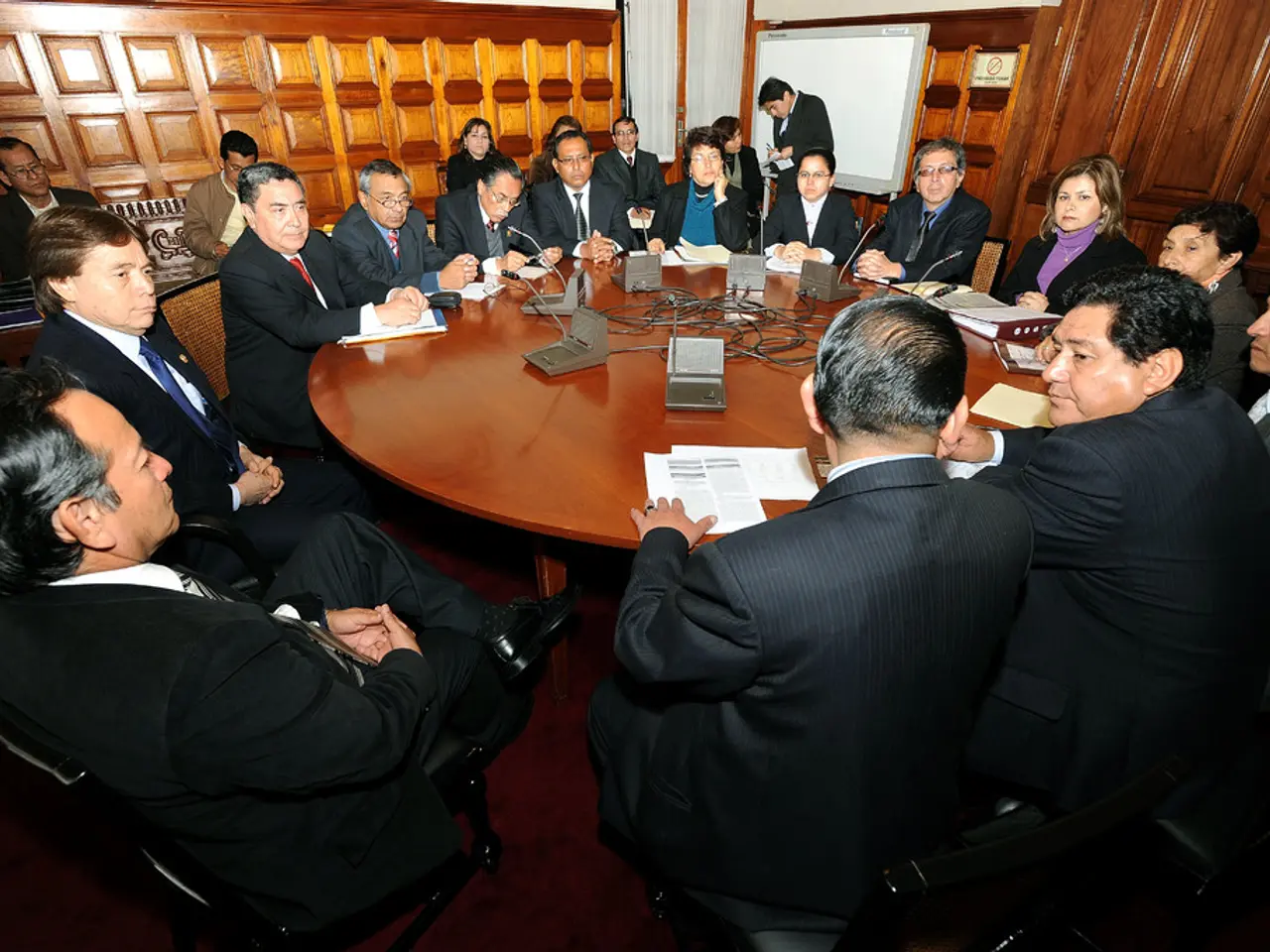Rights advocates push for public's say in choosing judges through elections
In a recent turn of events, the Left party in Germany has demanded a say in the matter of proposing candidates for judicial appointments at the Federal Constitutional Court. This demand comes after the party felt significantly irritated by the Union's handling of their faction, potentially leading to consequences, including during the judge election.
The Left party's leader, Jan van Aken, made this demand clear in a statement to the "Rheinische Post". The party's cooperation is crucial for the black-red coalition to achieve a two-thirds majority for the planned reform of the debt brake, a requirement for the election of judges at the Federal Constitutional Court. However, the Union, SPD, and Greens do not have a two-thirds majority in the new Bundestag, making the Left's support essential.
In response to the Union's handling of the Left faction, Heidi Reichinnek, the faction leader, threatened consequences, including during the judge election, after being denied support on Friday during the election of the parliamentary committee to oversee the intelligence services. The Left party is seeking a veto power in the process of proposing candidates for judicial appointments at the Federal Constitutional Court.
The Federal Constitutional Court has 16 judges who are elected in equal parts by the Bundestag and the Bundesrat. Currently, the nomination key follows the strength of the factions, with the Left and AfD previously not taken into account. The Left party wants the nomination key to be changed, allowing them to propose candidates as well.
In the event of disagreement, van Aken suggested that an exception could be made to allow a veto. He argued that this would be a reasonable solution according to the normal procedure. However, currently, there is no specific information indicating that the Left party's demands are directly influencing changes in the process for proposing candidates for judicial appointments at the Federal Constitutional Court in Germany.
The recent controversy surrounding nominations reflects broader coalition dynamics and political tensions. The opposition from conservative parties was not primarily due to demands from the Left party but rather driven by disagreements within the coalition over specific nominees and their political stances. The discussions and disputes are mainly between the center-left SPD and the center-right CDU/CSU, with other parties like the Greens commenting on the process.
In conclusion, the Left party's demand for a say in the matter of proposing candidates for judicial appointments at the Federal Constitutional Court is a response to the Union's handling of the Left faction and the threat of consequences. The party's cooperation is essential for the black-red coalition to achieve a two-thirds majority, but whether their demands will lead to changes in the process remains to be seen.
The Left party's demand for a veto power in the process of proposing candidates for judicial appointments at the Federal Constitutional Court is rooted in their response to the Union's handling of their faction, as stated by Heidi Reichinnek. Thisdemand is also critical for the black-red coalition to achieve a two-thirds majority, as the Left's support is essential due to the lack of such a majority among the Union, SPD, Greens, and without the Left's input, the process for proposing candidates at the Federal Constitutional Court remains unchanged.





